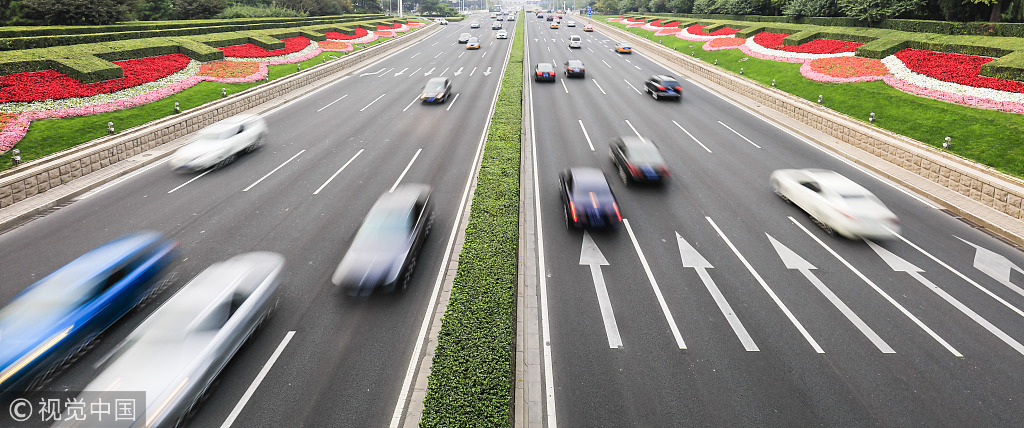Beijing takes aim at congestion, pollution with new car limits


Beijing will take new measures to control the number of cars without local licenses on roads to ease traffic and reduce pollution, the local government announced on Friday.
Starting on Nov 1 next year, cars not licensed by Beijing will have only 12 permits a year to enter the city, with each permit effective for seven days.
Under the policy, non-Beijing cars can only be driven in the city for a total of 84 days a year, and they must be parked in residential parking lots the rest of the time.
"There have been too many cars with non-Beijing licenses on the roads in recent years, which has made traffic worse," said Ding Zhe, 42, a local resident who now takes the subway to work, even though he owns a car with Beijing plates, because of traffic congestion.
Beijing had 5.97 million locally registered cars as of April, according to the Beijing Commission of Transport. However, there are constantly more than 700,000 non-Beijing-registered cars in use in the downtown areas-the number of all the cars in Hong Kong.
The government aims to cap the number of locally registered cars at below 6.3 million by the end of 2020.
The city has also made more efforts to improve public transportation. It has 22 subway lines with a combined length of 602 kilometers. An additional 397 km of subway lines are planned by 2021.
Beijing adopted a lottery policy in 2010 to curb the rising number of new cars in the city. Under the policy, a person must win a license through a lottery before buying a new car.
Because of the limited number of plates in the lottery system, many residents began registering their new cars in other cities. Car dealers also provide the service to help buyers obtain a non-Beijing license at a fee of about 4,500 yuan ($700). Car owners only need to put a record online to get permission on a weekly basis to drive in the city, although there are a few restrictions, including not being allowed to drive in some central areas.
In 2015, the authority gave out 50,000 permits each day. In 2016, the number soared to 100,000 a day. Since 2017, the authority has given out 725,000 permits each week.
"Giving such a permission is to allow non-Beijing residents to drive to Beijing on business or leisure purposes. Driving a non-Beijing-licensed car permanently in the city has abused the lottery policy," said Zhang Rui, an associate professor of city planning at Beijing University of Civil Engineering and Architecture.
"Even though there is strong demand for cars, city policymakers still have to put social fairness as a priority to ensure the effectiveness of existing regulations," she said.
Yuan Maocun, a transportation specialist at the Ministry of Transport, said Beijing's limited resources and capacity have made it necessary to control car numbers.
"The new policy has given people 17 months to deal with their cars," Yuan said.
Su Lei, 30, an engineer in Beijing, said he had his car licensed outside of Beijing three years ago.
"I seldom drive to downtown. I both live and work in the suburbs," he said. "If I cannot drive it every day, I have to use friends' cars, because public transportation is not very convenient in the suburbs."
He has been in the lottery for six years, but has not yet been lucky enough to get a Beijing license plate.
Zhang Yangfei contributed to this story.



































